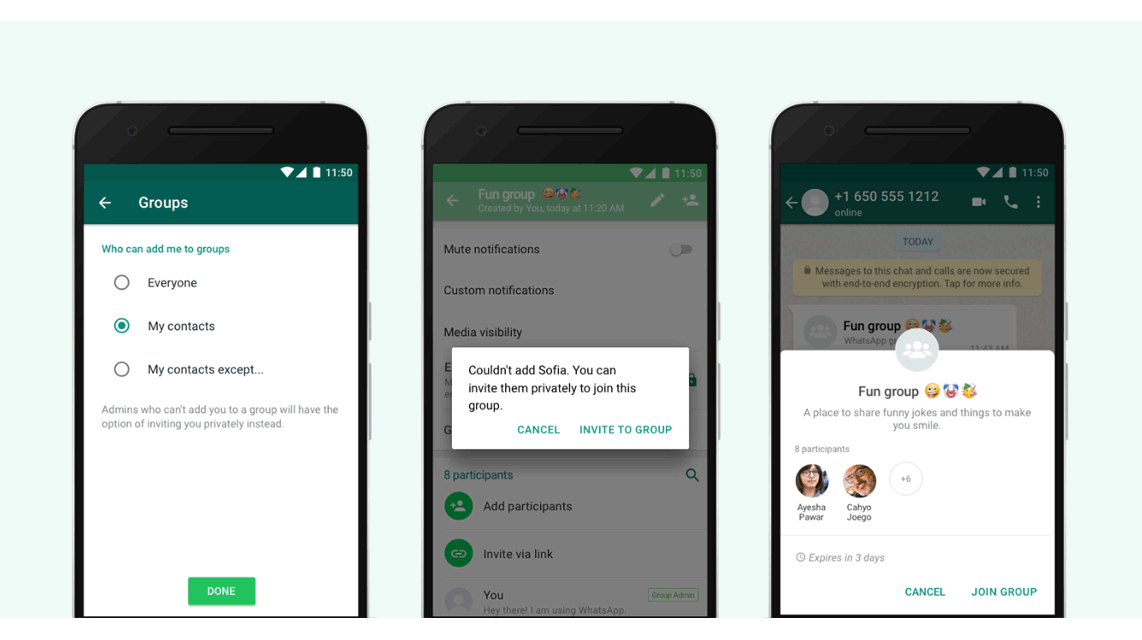
Group chats in WhatsApp can be fun, but they can also become annoying because crowds can be just too noisy.
This shouldn't be a problem anymore. Back in April, WhatsApp introduced a way for users to control who can invite them to groups. The social messaging platform stated that this privacy setting and invite system will help users decide who can add them to groups.
In an update, WhatsApp tweaks the privacy setting a bit.
So instead of the previous 'Everyone', 'My Contacts' and 'Nobody', which were introduced in April, the choices become: 'Everyone', 'My Contacts', or 'My Contacts Except'.
For those who want to invite others to a group, but can't add them because of this privacy feature, they need to send a private invitation through individual chat first. This should give the invitee a chance to choose whether or not they want to join the said group.
"You'll have three days to accept the invite before it expires," said WhatsApp.

The idea of these features is to provide users more control over the group messages they receive.
Among many people that concern misinformation and privacy, it was initially in India where the government has been asking WhatsApp to provide its citizens a way to ensure consent before they are added to group chats.
This is why the group privacy settings were launched for Indian users first, before being rolled out to other users in other countries.
Previously, the Facebook-owned messaging app announced the launch of an India-focused fact-checking feature to combat fake news and rumors, putting labels on forwarded messages, drastically limits message forwarding, and later again limiting forwarded messages to just 5.